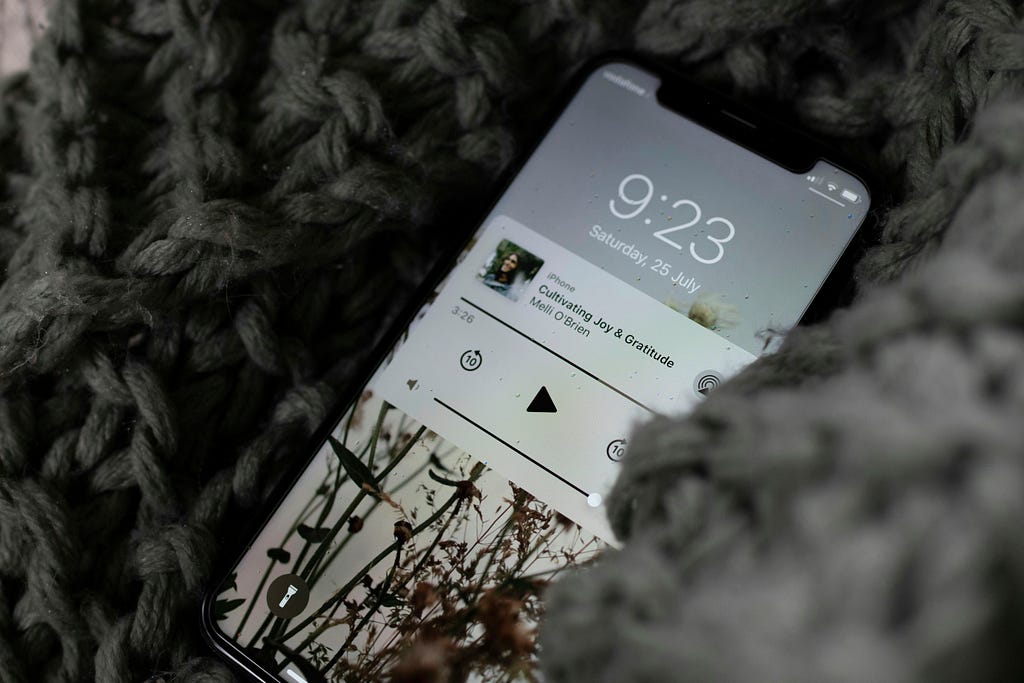Photo by Mindfulness Com on Unsplash
In an era where technology and mental well-being intersect, mindfulness apps emerge as beacons of tranquility and self-awareness. A recent review conducted by Natalia Macrynikola and her team delves deep into the efficacy of mindfulness-based interventions (MBIs) through smartphone applications, a subject that has piqued the interest of mental health professionals and app developers alike.
The Digital Evolution of Mindfulness
Mindfulness, the practice of anchoring oneself in the present moment with a non-judgmental mindset, has been a subject of scientific fascination for decades. Traditionally rooted in meditation practices, mindfulness has demonstrated significant therapeutic efficacy for various psychological conditions.
As our world pivots increasingly towards digital solutions, mindfulness too has found a new home — smartphone applications. These apps aim to democratize mental health care by offering guided practices that users can access anytime, anywhere.
The Impact Assessed
The systematic review by Macrynikola et al. examines the landscape of mindfulness apps through the lens of psychological change. Spanning studies from 1993 to 2023, the review includes 28 randomized controlled trials involving 5963 adults, offering a comprehensive look into how these apps influence mental processes.
The findings highlight three primary areas where mindfulness apps have shown promise: reducing repetitive negative thinking, enhancing attention regulation, and promoting decentering/defusion — the ability to observe one’s thoughts and feelings as transient mental events rather than facts.
The review doesn’t shy away from addressing the mixed outcomes in other psychological domains such as awareness, non-reactivity, and acceptance. The varied populations examined, methodological concerns, and the challenges of sustained app engagement contribute to these inconsistent results.
A Path Forward
Despite the mixed findings, when effects were observed, they were generally moderate to large and tended to persist in follow-up assessments two to six months later. This persistence suggests that mindfulness apps could play a significant role in mental health self-care, provided they are used consistently and mindfully.
Even so, the review also points out a crucial gap — the low uptake of mindfulness apps in clinical settings, despite their potential benefits. A significant barrier is the lack of clarity on which apps are scientifically validated and effective, underscoring the need for more rigorous evaluation and transparency in the digital mental health space.
Embracing Mindfulness in the Digital Age
As we navigate the complexities of mental health in the digital era, mindfulness apps stand out as a promising, accessible tool for psychological well-being. But as Macrynikola and her team suggest, more research is needed to understand their full potential and limitations.
Clinicians and users alike are encouraged to approach these digital resources with an informed perspective, leveraging databases and reviews to choose apps grounded in scientific evidence. By doing so, we can harness the power of technology to foster a more mindful, mentally resilient society.
Concluding Thoughts
The integration of mindfulness into digital platforms marks a significant step forward in mental health care. As we continue to explore this new frontier, let’s remain mindful (pun intended) of the need for evidence-based practices and the importance of personal engagement and consistency in our digital wellness journeys.
Visit my website http://radiantbliss.yoga for more insights and practices and to stay in the loop about the launch of my upcoming book, Radiant Bliss: A Transformative Yoga Journey for the Modern Soul, which will be available on June 24, 2025.

